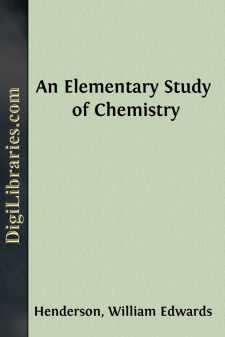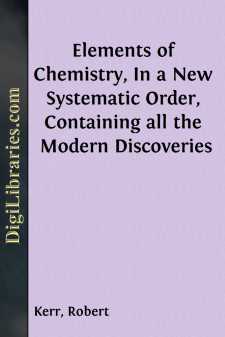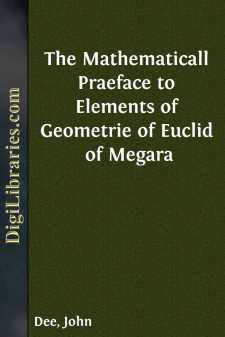Categories
- Antiques & Collectibles 13
- Architecture 36
- Art 48
- Bibles 22
- Biography & Autobiography 813
- Body, Mind & Spirit 142
- Business & Economics 28
- Children's Books 17
- Children's Fiction 14
- Computers 4
- Cooking 94
- Crafts & Hobbies 4
- Drama 346
- Education 46
- Family & Relationships 57
- Fiction 11829
- Games 19
- Gardening 17
- Health & Fitness 34
- History 1377
- House & Home 1
- Humor 147
- Juvenile Fiction 1873
- Juvenile Nonfiction 202
- Language Arts & Disciplines 88
- Law 16
- Literary Collections 686
- Literary Criticism 179
- Mathematics 13
- Medical 41
- Music 40
- Nature 179
- Non-Classifiable 1768
- Performing Arts 7
- Periodicals 1453
- Philosophy 64
- Photography 2
- Poetry 896
- Political Science 203
- Psychology 42
- Reference 154
- Religion 513
- Science 126
- Self-Help 84
- Social Science 81
- Sports & Recreation 34
- Study Aids 3
- Technology & Engineering 59
- Transportation 23
- Travel 463
- True Crime 29
Familiar Letters on Chemistry
by: Justus Liebig
Description:
Excerpt
LETTER I
My dear Sir,
The influence which the science of chemistry exercises upon human industry, agriculture, and commerce; upon physiology, medicine, and other sciences, is now so interesting a topic of conversation everywhere, that it may be no unacceptable present to you if I trace in a few familiar letters some of the relations it bears to these various sciences, and exhibit for you its actual effect upon the present social condition of mankind.
In speaking of the present state of chemistry, its rise and progress, I shall need no apology if, as a preliminary step, I call your attention to the implements which the chemist employs—the means which are indispensable to his labours and to his success.
These consist, generally, of materials furnished to us by nature, endowed with many most remarkable properties fitting them for our purposes; if one of them is a production of art, yet its adaptation to the use of mankind,—the qualities which render it available to us,—must be referred to the same source as those derived immediately from nature.
Cork, Platinum, Glass, and Caoutchouc, are the substances to which I allude, and which minister so essentially to modern chemical investigations. Without them, indeed, we might have made some progress, but it would have been slow; we might have accomplished much, but it would have been far less than has been done with their aid. Some persons, by the employment of expensive substances, might have successfully pursued the science; but incalculably fewer minds would have been engaged in its advancement. These materials have only been duly appreciated and fully adopted within a very recent period. In the time of Lavoisier, the rich alone could make chemical researches; the necessary apparatus could only be procured at a very great expense.
And first, of Glass: every one is familiar with most of the properties of this curious substance; its transparency, hardness, destitution of colour, and stability under ordinary circumstances: to these obvious qualities we may add those which especially adapt it to the use of the chemist, namely, that it is unaffected by most acids or other fluids contained within it. At certain temperatures it becomes more ductile and plastic than wax, and may be made to assume in our hands, before the flame of a common lamp, the form of every vessel we need to contain our materials, and of every apparatus required to pursue our experiments.
Then, how admirable and valuable are the properties of Cork! How little do men reflect upon the inestimable worth of so common a substance! How few rightly esteem the importance of it to the progress of science, and the moral advancement of mankind!—There is no production of nature or art equally adapted to the purposes to which the chemist applies it. Cork consists of a soft, highly elastic substance, as a basis, having diffused throughout a matter with properties resembling wax, tallow, and resin, yet dissimilar to all of these, and termed suberin. This renders it perfectly impermeable to fluids, and, in a great measure, even to gases....












